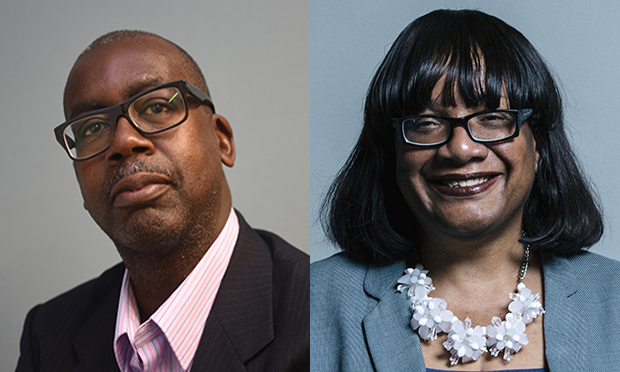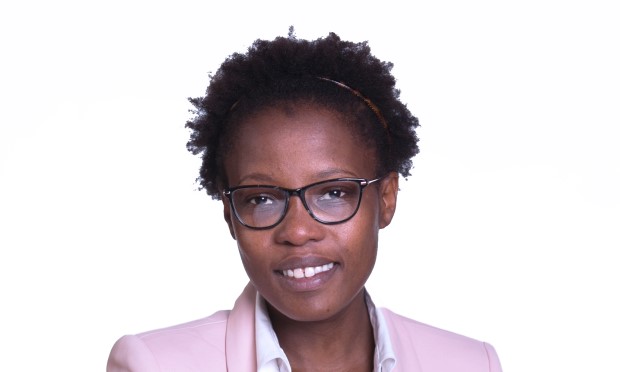Black History – The Past and The Present: Prominent local figures take part in ‘illuminating’ panel

In celebration of Black History Month, hundreds of Londoners from different corners of the capital gathered last week for an illuminating panel discussion chaired by Clissold councillor Kofo David and attended by Diane Abbott MP, Patrick Vernon OBE, Professor Leslie Thomas QC and councillor Sem Moema, along with Carina Ancell and Alan Kunna from the Newham Sixth Form African Studies Centre.
In a year that has seen worldwide protests against the continued systemic inequalities faced by the African diaspora across the planet, Black History Month this October has taken on a different tinge.
At long last, Britain seems to be gradually awakening from its national amnesia about its bloody and brutal past. It feels that finally our nation is beginning the process of acknowledging the instrumental role its colonial endeavours played in creating a global racial paradigm that has subjugated and dehumanised people of African descent ever since.
The insidious legacies of this system continue to play out in the treatment of Black people in the criminal justice system, the invisibility of Black people in many aspects of public life and the far higher rates of poverty afflicting Black people than the White British population.
Although we are beginning to unravel these power structures, there is still much work ahead.
The talk, entitled ‘Black History: The Past and The Present’, covered vast terrain, ranging from exploring why pre-colonial African history has been so neglected from school curriculums to discussing the most suitable ways of memorialising the Transatlantic Slave Trade and the British Empire. A final theme considered the ways in which historical injustices can be redressed as part of a broader discussion about tackling inequality in society.
Cllr David told the Citizen that the panel discussion was organised by the London Black, Asian and minority ethnic Labour Officers network.
He stated, from the beginning, that it was vital for the group to host a discussion that reflected a range of material and perspectives on Black history.
“We looked at the different themes of Black History Month events that have been going on over some time and the thing that stood out was the fact that Black history was mostly narrowed down to slavery and colonialism,” he explained.
“We thought there was more to it than that and also realised that there are other activists whose works are not being brought to the forefront enough.”
In this vein, the discussion was kicked off by the fledgling African Studies Centre which was opened to counter the dearth of Black history taught in British schools, and also to promote positive narratives about Africa.
Alan Kunna, a history lecturer, spoke to the audience about the richness and diversity of African history, saying the opening of the centre was important so “African history can be studied on the terms of Africa”.
He added: “[Pre-colonial Africa] is a period of time which needs to be understood more widely.”
Kunna highlighted the findings of a 2018 report by Sengalese economist Felwine Sarr and French historian Benedicte Savoy which showed that 90 per cent of known African artefacts are located outside of Africa.
He went on to discuss how many African treasures of “huge cultural and religious significance” have been consigned to languish, encased, in the shadowy corners of Europe’s museums, with our understanding of them fragmented and decontextualised.
Kunna spoke of the colonial legacy of devaluing Africans’ intelligence and reasoning skills, a barrier many Black people are still forced to overcome in some quarters, and pointed to the words of German philosopher Frederich Hegel, who emphatically declared in the 19th century: “The peculiarly African character is difficult to comprehend, for the very reason that in reference to it, we must quite give up the principle which naturally accomplishes all our ideas – the category of universality […] At this point we leave Africa, not to mention it again. For it is no historical part of the world; it has no movement or development to exhibit.”
Although these ideas were articulated centuries ago, this dismissal of the value of Africa and by extension its people remains deeply planted in European society and has proved hard to shake off.
One only has to consider that it was as recently as 2015 that pre-colonial African history became available on the British A-Level curriculum to understand there is still not a full appreciation for the continent’s rich contributions to human civilisation.
Carina Ancell, who is also a History lecturer at the African Studies Centre, said the absence of African history in many British classrooms “hinders students’ personal and academic development so not only do they not get a broad range of academic history to study but also this is about them shaping and learning about their own personal histories and stories”.
Carina added the lack of Black history “doesn’t only impoverish the curriculum for Black students, it impoverishes the curriculum for all students”.
She said one aim of the Centre was to change the way schools deliver Black history, drawing out more examples of “Africans as agents, not just victims of history”.
Former Hackney councillor Patrick Vernon OBE then spoke about his trailblazing campaigning over the last two decades, reflecting on the progress which has been made but stating there is still a long way for Britain to go.
Vernon reflected on the success of his early initiative, launching the ‘100 Great Black Britons’ poll in October 2003 in response to the “omission of the Black historical experience” from the original BBC list.
He highlighted that the absence of the Black experience from our curriculums fails to take into account there has been a “Black presence in Britain going back over 2,000 years […] We have been here a long time”.
“Part of Black history is the acknowledgement, which is really important, around the history of reparations, the history of conciliation and trying to redress historical wrongs,” he added.
Vernon’s decades of activism have found expression this year in the publication of the 100 Great Black Britons book, co-written with Dr Angelina Osborne.
Following on, Professor Leslie Thomas QC and Hackney Downs ward councillor Sem Moema both shared moving, personal testimonies about their childhood and familial experiences of racism, reflecting on how these early events shaped their sense of purpose and encouraged them to pursue their respective fields of law and housing policy.
Professor Thomas talked about being stopped by the police at the age of 15 while walking home in his school uniform: “I will never forget the humiliation I felt when I was searched, having done nothing, but simply because of the colour of my skin. This has been one of the drivers which has made me do what I do.”
Forty years later, Professor Thomas is now one of the UK’s leading legal experts in claims against the police and other public authorities.

Cllr Moema, who is the borough’s mayoral adviser for private renting, spoke of her desire to see a transformed society “to make sure varied Black histories are understood and […] Black people’s voices are heard at all levels of civic and political life”.
She reflected on her parents’ experiences of being forced to live in segregated communities by the Apartheid regime in South Africa with very different living standards to White South Africans.
Whilst Moema said “the days of such open discrimination in housing are thankfully largely behind us”, she highlighted that Black communities are still some of the hardest hit by poor quality housing.
Last but certainly not least, Diane Abbott, who, as the first Black woman to become an MP in UK history, is a vital part of the mosaic of British history herself.
Abbott reflected on the ongoing campaign to get the Museum of the Home to take down the statue of slave trader Robert Geffrye.
Although a community consultation revealed most Hackney residents wanted the statue removed, and after culture secretary Oliver Dowden wrote to the museum expressing the government’s disapproval at the prospect, Robert Geoffrye continues to stand on his pedestal.
The Hackney North MP spoke of her disappointment that this continues to mean “a statue of a man who made his millions out of the broken bodies of Africans looming over one of the most diverse boroughs in the country”.
Despite this upsetting reality, Abbott finished her segment with a stirring entreaty to the audience that “progressive people in Britain, America at this time need to remember how we have emerged from the dark history of slavery and colonialism to know how we can move forward together united as progressive people, Black and white to a far better future”.
One of the most shattering responses to the dogmatic pursuit of many conservative politicians and cultural commentators on both sides of the Atlantic to retain statues of slave traders has come from African American poet Caroline Randall Williams.
In a piece entitled ‘You Want a Confederate Monument? My Body is a Confederate Monument’ for the New York Times in June, Randall Williams wrote: “I have rape-colored skin. My light-brown-blackness is a living testament to the rules, the practices, the causes of the Old South […] If there are those who want to remember the legacy of the Confederacy, if they want monuments, well, then, my body is a monument.
“Yes, I am proud of every one of my Black ancestors who survived slavery. They earned that pride, by any decent person’s reckoning. But I am not proud of the white ancestors whom I know, by virtue of my very existence, to be bad actors […] What is a monument but a standing memory? An artefact to make tangible the truth of the past. My body and blood are a tangible truth of the South and its past.”
I put it to you and your government, Mr Dowden, that you cannot continue to retain the stone monuments of the past whilst erasing the history of the human ones.
